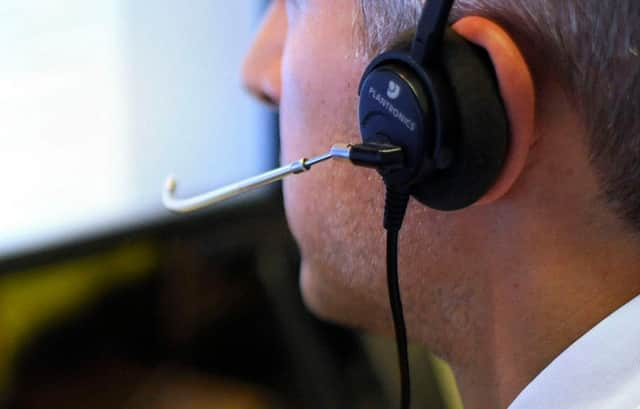Wait for callers to south east London’s 111 service increases 19 times in five months


Callers to south east London’s 111 helpline waited 19 times longer to access help last month than just five months previously, as health services nationally experienced their busiest month on record.
Health think tank the Nuffield Trust said increasing waiting times for the urgent helpline were symptomatic of the high level of pressure on health services.
Advertisement
Hide AdAdvertisement
Hide AdNHS England data shows it took an average of 82 seconds, or around one and a half minutes, for South East London 111 helpline operators to answer calls from people seeking medical help in September – 19 times longer than in April (four seconds).
And of 63,386 calls made to the service, 18% were abandoned before being answered.
This was much higher than the percentage in April, when 10% of 61,278 callers gave up before speaking to an operator, and far above the NHS’s target of keeping abandoned calls under 3%.
Of the calls answered by South East London 111 helpline, 17,973 were recommended to attend primary care services, such as their GP, 4,933 were told to attend an emergency department, and for 3,816 callers an ambulance was called.
Advertisement
Hide AdAdvertisement
Hide AdAcross England, 1.9 million calls were made to 111 in September, but a quarter of them were abandoned.
The average waiting time was 557 seconds, around nine minutes.
Although April saw 14,500 fewer calls, the average waiting time was considerably lower, at 100 seconds, as was the rate of abandoned calls (7%).
Dr Sarah Scobie, deputy director of research at the Nuffield Trust, said: “Increasing waiting times across the board are a result of the continued impact of the pandemic including staff absences.
Advertisement
Hide AdAdvertisement
Hide Ad“There were an average of over 73,500 staff absent in the last week of September, and the increasing number of Covid hospitalisations we are seeing this autumn suggests a difficult winter ahead.”
The NHS said the September figures were provisional, and may be revised.
Different figures show major A&E departments across the country treated more than 1.39 million people in September this year – the highest ever September figure.
Ambulances responded to a record 76,000 life threatening call-outs, an increase of more than 20,000 on the previous high for September in year, while 999 took nearly 1 million calls.
Advertisement
Hide AdAdvertisement
Hide AdNHS England said its 111 helpline saw record demand, taking a call every seven seconds in August, with over 1.9 million calls across the month.
An extra £23 million has been given to the service to help meet increased call volume.
Professor Stephen Powis, NHS national medical director, said: “There is no doubt the NHS is running hot, with the highest ever number of patients seen in A&E in September, 14 times as many Covid patients in hospital compared to the same month last year, and record ambulance call-outs.
“But despite the busiest September on record, NHS staff have moved heaven and earth to make the best possible use of additional investment, delivering millions more tests, checks, treatments and operations.
Advertisement
Hide AdAdvertisement
Hide Ad“That is why it is really important people do not delay seeking help from the NHS if they feel unwell.
“Anyone needing help should come forward through 111 online so that staff can help you with the best option for your care.”